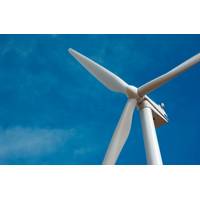WASP Sets Sail on its 3-Year Voyage
The WASP (Wind Assisted Ship Propulsion) project, funded by the Interreg North Sea Europe program, part of the European Regional Development Fund (ERDF) to the tune of €3.4 million has been officially approved and launched.
The project brings together universities, wind-assist technology providers with ship owners to research, trial and validate the operational performance of a selection of wind propulsion solutions thus enabling wind propulsion technology market penetration and contributing to a greener North Sea transport system through harvesting the regions abundant wind potential.
This fully aligns with the wider programs’ objective of promoting the development and adoption of products, services and processes to accelerate the greening of the North Sea Region
Danitsja van Heusden-van Winden, Netherlands Maritime Technology Foundation and WASP project lead beneficiary said: "We’re delighted to be able to commence the WASP project and we are thrilled or looking forward to being able to test the wind propulsion systems on different types of vessels, routes and sea conditions throughout the project duration thanks to Interreg’s support and the efforts of all the project partners."
The project shipping partners include Scandlines Gedser-Rostock, Boeckmans Ship Management and Van Dam Shipping along with two additional partners to be added shortly.
Wind propulsion, shipping logistics and innovation experts will be monitoring and evaluating operations and developing pathways and applications to tackle the regulatory and business-related issues that are often major barriers to the uptake of new technologies.
This expertise is drawn from Chalmers University of Technology, Katholieke Universiteit Leuven, Kühne Logistics University, the Danish Ecocouncil, Nord University, SSPA, the European Federation for Transport and Environment, HHX.blue and supported by the International Windship Association and the Netherlands Maritime Technology Foundation.
The transition to decarbonised shipping is the greatest maritime challenge of our time and demand for low carbon solutions is growing. Direct wind propulsion along with secondary renewables: wind-sourced ammonia, hydrogen and other fuels and batteries, are all pieces in this decarbonisation puzzle.
The high potential for wind energy in North Sea region and innovative, automated wind propulsion technologies such as rotors sails, suction wings and rigid sails can directly harvest this resource and contribute significantly at a time of rising fuel prices, market instability, emission reduction directives, carbon pricing, a tightening regulatory and policy environment. All are making wind solutions more commercially attractive for the future.












